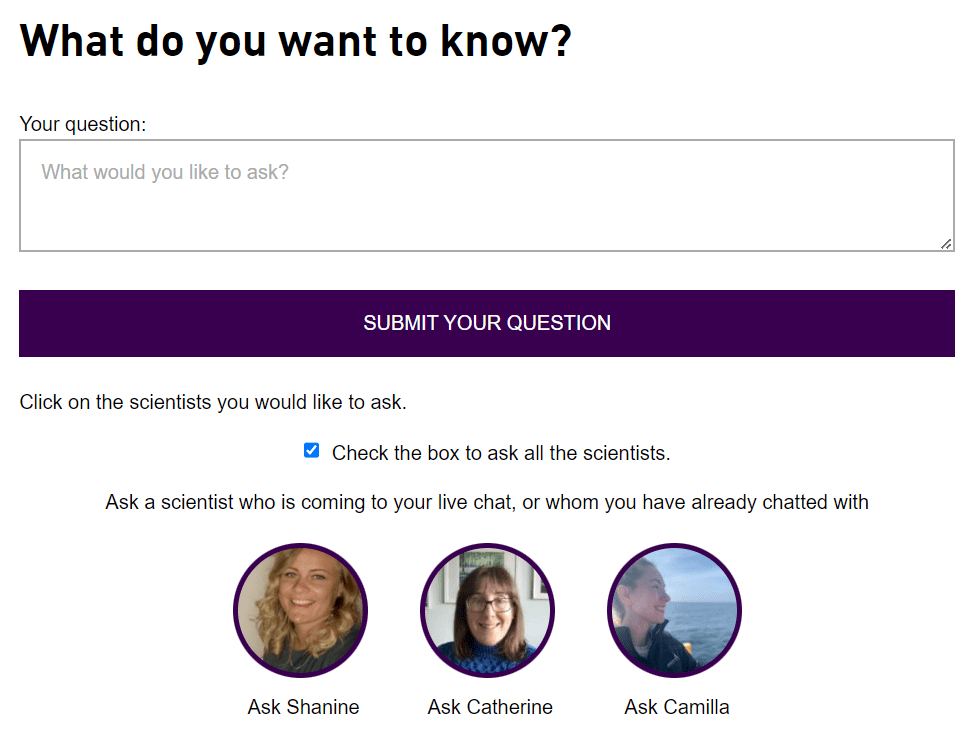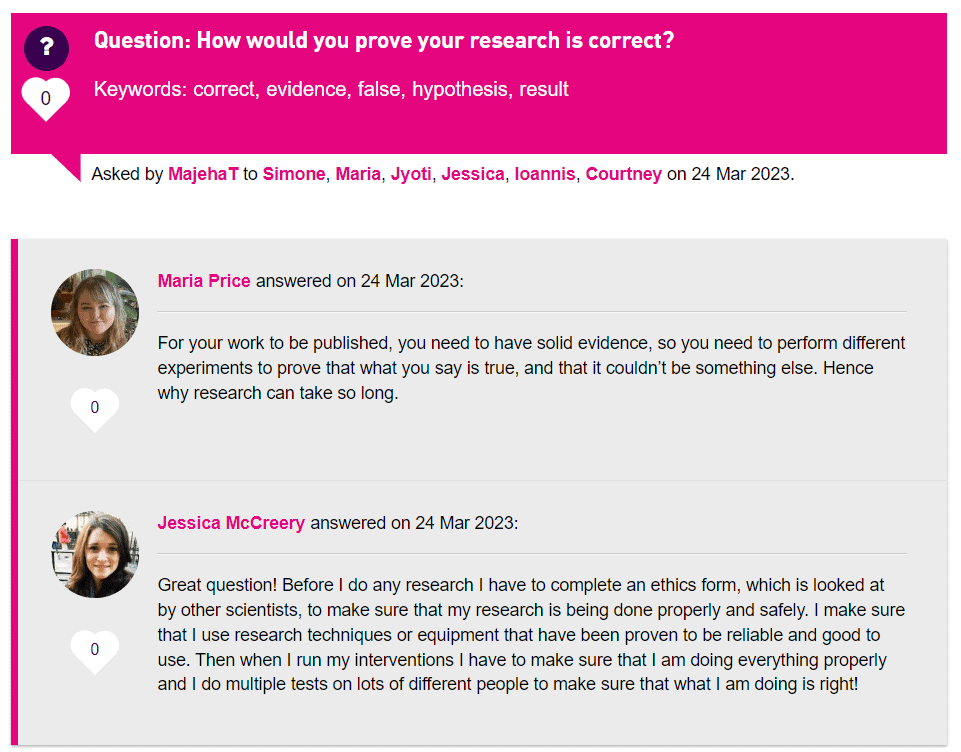ℹ️ What is Ask?
Students can ask follow-up questions to any scientist who was invited to their Chat.
💭 How does Ask work?
- Whether a student has taken part in a live Chat or not, questions can be submitted to the scientists through the Ask feature.
- Scientists will answer questions when they have time to, usually within 24 hours.
- If students add an email address to their account, they get an email alert when their question has been answered.
- Teachers are able to see the questions their students have had answered from their Dashboard.
- Students can see the questions their peers have asked.
- Students, teachers and scientists can comment on these questions, sparking wider conversations.
🧠 Why are follow up questions important?
- By asking follow-up questions, students deepen their understanding in an area of interest to them.
- Students can reflect on topics which were brought up in live Chats, and receive personalised, in-depth answers.
- It is an opportunity for students to develop their research and higher order thinking skills.
- Students are able to explore up-to-date projects that the scientists are working on in their diverse careers, developing their scientific literacy.
- Students whose questions are answered feel that their contributions are valid and valuable, supporting their science capital.
➕ Here are some example questions from students:
What is the most difficult part of your job
Are you looking forward to the Research and Innovation Zone? Students will be able to send questions (like this!), and
How do you use engineering principles to study plants and improve their growth and development?
How does your research contribute to decreasing climate change and can you use your knowledge to improve ways for
How do you describe world around you, in 3-5 words?
Do you see rare plants underwater?
Do you like the orange trees?
What do you prefer: cats or dogs?
is it hard balencing your childrens needs with your work?-isaac
how does a vaccination help???



